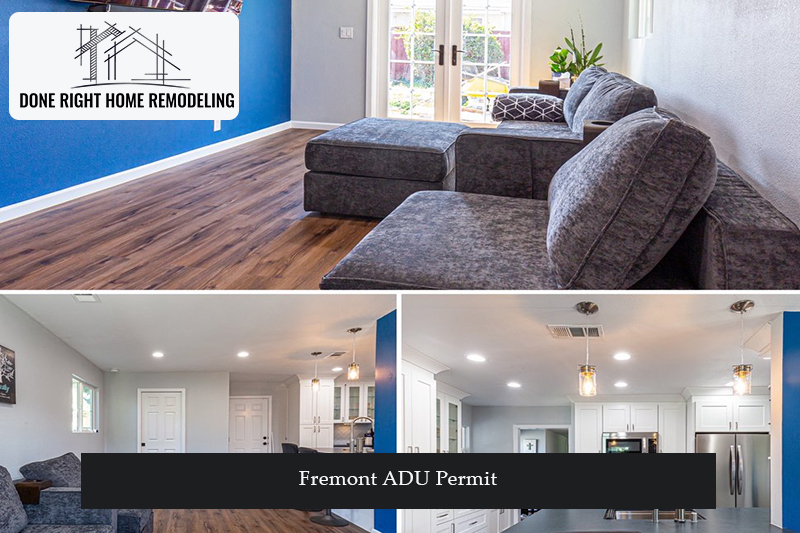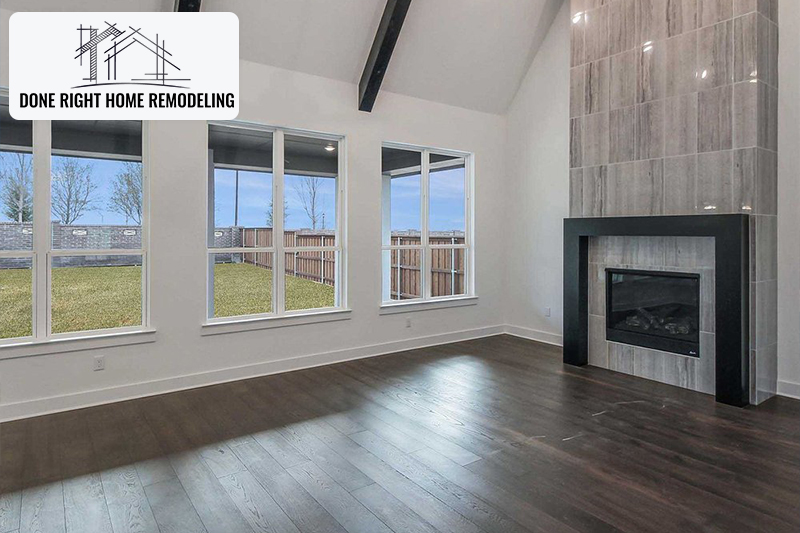LIC #: 1002689
Let us dive into the world of Fremont ADU permit together! When it comes to constructing an ADU, there is a need to obtain the necessary permits to ensure that it meets the standard building codes.

As professional ADU builders in Fremont, we have experience and knowledge of the local building codes, regulations, and industry best practices and familiarity with the permit application process.
Therefore, Done Right Home Remodeling oversee your ADU construction project from conceptualization to finish, making sure it is built as per the city of Fremont ADU construction regulations.
We can prepare detailed plans and specifications of the framing work, including architectural drawings, structural designs and other relevant documentation to obtain the required permits on your behalf.
Various structural permits may be required depending on the scope of your ADU project. Here are some common types of permits:
| Type | Purpose |
| New Construction Permit | This permit covers the entire structural scope of the project, including foundations, framing, and other vital elements. |
| Grading Permit | This permit ensures that grading work such as excavation, filling, or land contouring meets local erosion control, drainage, and slope stability requirements. |
| Foundation Permit | This permit focuses specifically on the structural elements related to the foundation, ensuring that it meets the necessary load-bearing requirements and is built to withstand the anticipated loads. |
| Alteration Permit | Commonly for attached and junior ADUs, it permits structural modifications, such as removing or adding walls, changing load-bearing elements, or altering the overall structural integrity of the building. |
| Structural Repair Permit | This permit ensures the repairs are done correctly and comply with the necessary building codes and safety standards. |
Our professionals specialize in prefab ADU construction aligned with your style and preference while ensuring that it meets the building codes of Fremont. Here are some of the permits applicable for a prefab ADU;
It involves reviewing the construction plan, site inspection, and compliance with structural, electrical and mechanical requirements to ensure that the prefab ADU meets building codes, safety standards and other regulations.
This permit is needed to install a prefab ADU to ensure compliance with local zoning regulations and may involve requirements related to setback distances, height restrictions and parking.
These permits ensure the connections meet safety standards and comply with relevant codes for hooking up to the existing utility lines.

For ADU construction in Fremont, you should understand different scenarios when you many need a permit renewal, especially after expiration.
The city of Fremont building code sets timeline requirements when building permits are issued. From the day the permit is given, it will expire unless the ADU project is started within two years.
The permit must also call for and pass a valid inspection failure of which, within the first two years, the permit becomes null and void.
Additionally, if the project stops after passing the first inspection at least after six months, the permit expires regardless of when the review took place within the first two years of the life of the permit.
If your ADU permit expires before the completion of its construction, you may apply for a permit renewal.
We can collaborate closely with you to navigate the permit renewal process by:
Ready for your ADU project? Let’s implement and create from the concept to bring your desired ADU to life. Contact us and get started now.
ADU permit delays can result due to various reasons, such as high demand, limited staff, complex regulations, incomplete application, and the need for additional information to meet the codes.
Sloped ADU sites may require additional permits for grading, retaining walls, and geotechnical studies to assess soil stability.
Specific requirements for an attic conversion to ADUs include ceiling heights, egress windows, fire safety measures, and zoning compliance.